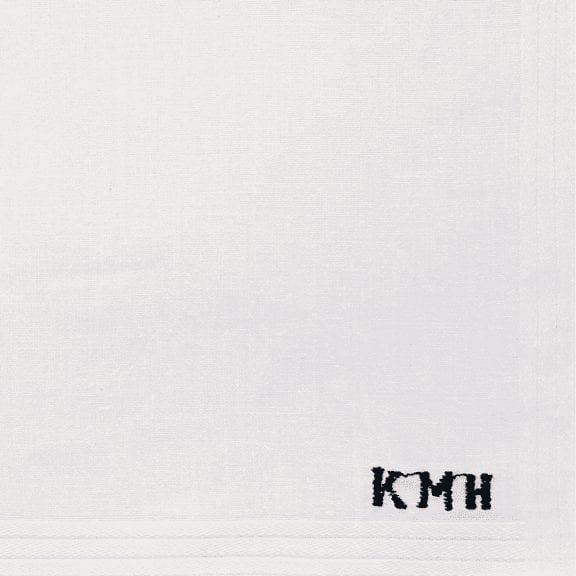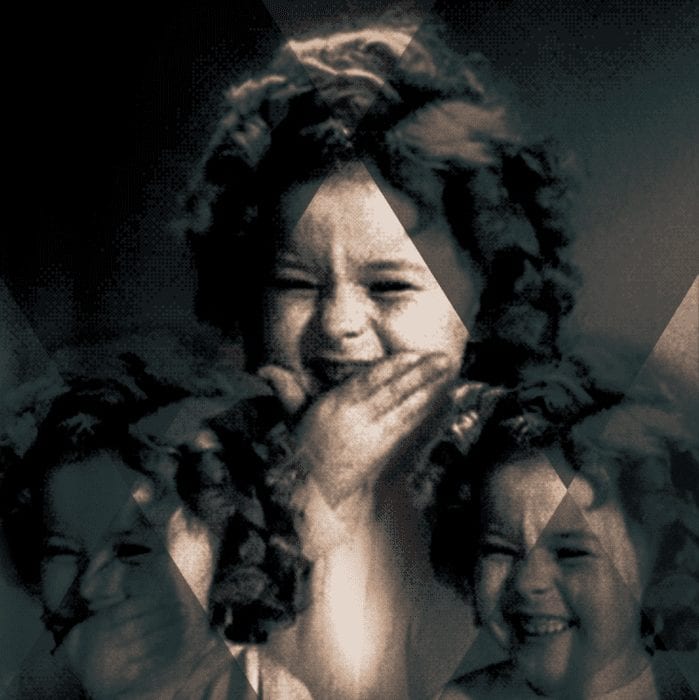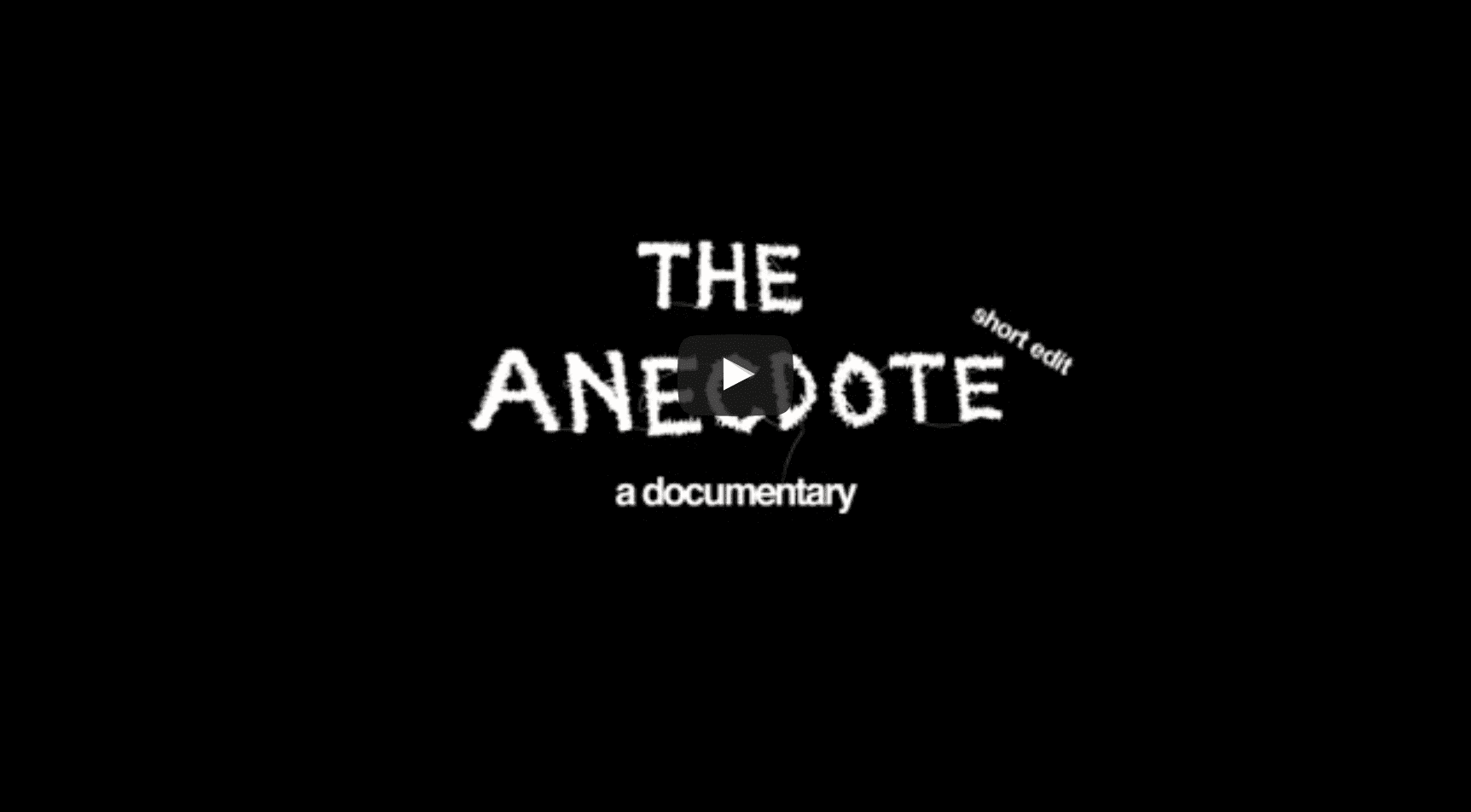5THANGS you probably did not know about 2015’s #1 album ‘The Anecdote’.
XXX release ‘Dead Wrong Remix (Feat. E Sens)’
Check out the new track released by XXX on SoundCloud.
E SENS – Next Level
- Title: [types field=”song-title” output=”raw”][/types]
- Artist: [types field=”artist” separator=”, “][/types]
- Album: [types field=”album-title” separator=”, ” output=”raw”][/types]
- [types field=”year” format=”FIELD_NAME: FIELD_VALUE”][/types]
- [types field=”original-lyrics” title=”Original lyrics” target=”_blank” separator=”, “][/types]
Verse 1)
I quit school full of spirit and became dejected after only one month
Without anything to do, I played online games all day long
I dumped my initial attitude, “I need to do something, anything((The lyrics jump back and forth between past and present tense, so for them to make sense in English and also to avoid having to change the tense everywhere, I added quotation marks.))
In this pathetic state,((= situation, sight)) saying that I do music is nothing but an excuse for bumming”
“If you wanna be a rapper, you gotta be a few levels above the noraebang kids((Reference to so-called ‘noraebang rappers’, people who only rap at noraebang))
There’s a competition,((Youth Hiphop Festival (청소년 힙합 페스티벌) in Daegu)) shall I participate?”
My first challenge at the age of seventeen. “There’s no other kid
who quit everything like me so I should participate and win against them all”
I went there and the judge was Onesun. JJK who had won in the previous year
held a congratulatory concert with rappers from Daegu
I didn’t know that there were other rappers
in the Korean underground besides Master Plan
After seeing them, I realized that there were others like me who quit everything for rap
I was probably thinking too naively and got a bit nervous
After rapping in front of passersby who stopped to watch,
the result was that I won, yeah
When it ended, someone who rapped on stage earlier called out to me:
Virus’ Minos. He told me to come hang out at his place some time
I went. He said there was going to be a hiphop concert at club Heavy((Hiphop Train))
so I should go and rap one track. Shit, on that night I went wild
Hook)
On to the next level
Just on to the next level
One step after the other in order
If I’m going to do this, then I do it properly
Now just on to the next level
Verse 2)
The first concert of my life, the entrance fee were 3,000 won
I was definitely rapping with my eyes open but I didn’t see anything
At that time I felt it, “Ah, I’m still just an amateur”
Afterwards, I followed the hyungs around, went to clubs too
Five months after having dropped out of school, I participated in a competition in Seoul((According to this source, it was the ‘5th Hiphop Festival with Topics’ (주제가 있는 힙합페스티벌) which was held by the Women’s Center as part of the Cultural Activities for the Youth and the topics were The Youth’s Thoughts on Relationships/Dating and Messages against Bullying, School Violence, Corporal Punishment.))
I went to Dongdaemun for the first time, there were quite a few guys with stylish clothes
The judge was MC Meta, I won again,((Winner: Kang Minho, first-year student of Dukwon High School with the song ‘수줍은 용기’ [Shy Courage] (topic: Youth’s Thoughts on Relationships/Dating), he received high points for his excellent storytelling; you can watch a fanmade video with the song here.))
smiling as though naturally everyone from Kyungsang-do had this attitude
Third place was Fana, who was second place again? Anyway,
at the congratulatory concert performed the competition’s previous winner, The Quiett
It was since then that I went back and forth between Seoul and Kyungsang
I’ve seen a lot of people, I also have a label now
But at the time we hadn’t been to the center of this game yet
Paloalto, Deepflow, Simon D in Busan
21-year-old RHYME-A- was the jungle prince((Possibly a reference to the manga and anime series Kimba the White Lion; the Korean title is Jungle Prince Leo))
I was the best high school rapper, it was my source of pride all the time
When we all held a concert together, there were about 60 people in the audience
At the afterparty we said: “Let us too turn the scene around!”
From Blue Oyster Farm, MP, to club Geeks
After changing [location] twice, I stood on that stage for the first time
Hook)
On to the next level
Just on to the next level (don’t talk about it, be about it)
One step after the other in order
If I’m going to do this, then I do it properly
Now just on to the next level
Verse 3)
After the contract with Karasadae((가라사대, former hiphop label of e.g. Primary, Koonta, Jinbo, P-type, Isaac Squab, TKO; dissolved due to the leave of its CEO Saatan)) we dissolved, and then after the contract with Tyle Music
I elatedly moved to Seoul where I lived at a stranger’s place
I thought I had come closer to my dream, but in only a few weeks
the contract fees of 500,000 won were spent and I started feeling the pinch
The label went broke and, “Fuck it, I don’t need the deal, son”
My position was a bit different from Dok2 who didn’t want
to appear on TV as All Black. I couldn’t pay my rent so I helped out at construction sites
I was ready to row, but the water wouldn’t come in
Ten days a month I worked, made music for fifteen days, and went to drinking parties for five
Because of my damned attitude of staying true to myself, my music was in reality profitless
Four rappers living together on a rooftop in Yeongdeungpo
miserably ordered one chicken and shared it
“It can’t go on like this.” I formed a team with Simon D and went to Busan to work part-time
at a b-boy musical((Here‘s a short video of the musical B SHOW, hands down if you can spot E SENS and Simon D)) where I received 3 mil a month
However, that became a big hit every weekend in Hongdae
The first solo concert under our name had an audience of 1,200, wow!
Kim Haksun’s interview with BANA’s CEO Kim Kihyun on E SENS’ album ‘The Anecdote’
Read Kim Haksun’s Sounding Review with BANA’s CEO Kim Kihyun on the making of E SENS’ album ‘The Anecdote’. (via mediaus)
Kim Haksun, chief editor of music web magazine :BODA, has started a weekly series on mediaus titled ‘Sounding Review’. One week he will write brief reviews about a Korean album that has come out in the last month and which you should not miss, in the next week he will write columns on music or interview musicians.
All hiphop communities online talk about nothing but E SENS. It has been over ten days since his album was released, but still ‘The Anecdote’ is taking up most parts of people’s discussions. Critics showed a great response as well, giving the album positive reviews. The album has been sold more than 17,000 times, lining it up alongside Infinite, Autumn Vacation, Jo Soomi, and more. It can definitely be called an unprecedented incident.
In the midst of all this attention, a brief documentary on the making of ‘The Anecdote’ has come out, called ‘The Anecdote: a documentary (short edit)’, which features only the main character E SENS, and Obi Klein who made the music. Someone else appears as voice only: BANA’s CEO Kim Kihyun who produced ‘The Anecdote’. As we cannot talk to E SENS personally at the time (he is currently serving his sentence for smoking marijuana), I wanted to hear from CEO Kim Kihyun, the person who has the most to say about ‘The Anecdote’. Since the beginning of the album’s production, he has had countless discussions with E SENS [on the album], and he is the one who went with him to Denmark, watched over the production and filmed it.
The company BANA (Beasts And Natives Alike) is new to music and hiphop fans. Please introduce BANA.
BANA is currently made up of E SENS, XXX, 250, and Erick Oh. We are not limited to hiphop or music only, we work together with people from various types of arts to create new media and contents.
Have you known E SENS before he signed with BANA? And how did he end up joining you?
When I was planning BANA, I did not know E SENS. At the time, I was working for SM Entertainment as International A&R. Around the time I quit that job to start BANA, I coincidentally read a news article about E SENS preparing to go independent. That’s when I decided that E SENS would be able to do exciting work together with BANA and contacted him. Starting from the first time I told him about it, E SENS has liked BANA’s concept a lot, so he joined me. Since then, we have been in this together through all the ups and downs.
Were you planning a full-length album instead of an EP album since the time he signed with BANA?
E SENS is already an acknowledged rapper. He was thinking about his first full-length album more than anyone else, and what his career needed wasn’t an EP but a first full-length album.
After he left Amoeba Culture, the expectations for E SENS’ new album have been huge. Didn’t he feel pressured?
E SENS is not here, and I cannot speak for him about his feelings. All I can say is that he prepared the album extremely carefully, as it is his first full-length album after all.
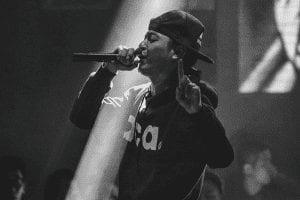
Did he tell you what kind of album he wanted to make before the production of the album began?
As producer and A&R I continuously communicated with the artist, E SENS, from beginning until the end of the production process. There were a lot of things that E SENS wanted to express with the album, and my role was to give him advice on that. As soon as we had decided on the topics that were going to be part of the album, the concept ‘The Anecdote’ was completed. What I cared about as producer the most, was to imprint the album name ‘The Anecdote’ on people.
Had you already decided that personal stories of Kang Minho and not of rapper E SENS were going to be part of the album?
We had countless discussions. However, what he talks about is fully up to the artist. Instead of addressing the common ‘rap game’, E SENS wanted his first full-length album to contain the stories that have been occupying him, that he wanted to let out. I think it is right if E SENS himself talks more about this in the future.
Many people speak of boom bap and 1990’s sound. Had you planned for these sounds from the beginning?
When we were looking for tracks to fit the album, E SENS knew what kind of sounds he wanted so exactly and in detail that he once said “I want tracks that are clean and minimal like sushi.” Instead of imitating or reproducing the sound of a certain time, he put the focus on reinterpretation.
The album’s beats were made by only one person, producer Obi Klein. These days, it is common that an album is made up of beats by various beatmakers, why didn’t you do that?
Our first plan of ‘The Anecdote’ featured a line-up of various famous producers from abroad. Before we had the second writing camp in Denmark with Obi, we had received more than 300 tracks by several foreign producers and had been monitoring them. Actually, the first camp with Obi was a trial since E SENS did not have enough experience in working with foreign producers. However, their chemistry was as good as perfect. During the first camp, ‘The Anecdote’s very first track they worked on, ‘Back In Time’, was made.
There were many producers more famous than Obi and I wanted to try different things, but putting stuff like name value and production aside, E SENS wished to complete his first full-length album together with Obi who exactly understood ‘The Anecdote’s concept.
How did you get to know Obi?
Like I said before, I worked at SM Entertainment as International A&R for nearly three years before founding BANA. In that position, I had to work with foreign producers a lot, so I naturally got to know Obi through a music camp. At that time, he was making a lot of R&B-based songs. As I got to know him better, I found out that he had been working as hiphop producer in the USA before.
Obi has been giving songs to Korean idol groups. How did you gain the belief that you could leave the whole album to him?
SM Entertainment has a producer pool so huge it’s uncountable. However, most of those producers have a strong tendency to pop songs. There were very few who could bring a great merit to the ‘The Anecdote’ project, leaving hiphop aside. Now, Obi is indeed well-known for producing KPop songs, but he started his career as a producer originally in hiphop. He know sthe vibes and ways of various hiphop eras very well and he also expressed his strong will to produce hiphop tracks again. Actually, leaving the whole album to Obi was something that came about really naturally during the production process. Of course, as the writer, E SENS was endlessly concerned about ‘The Anecdote’s stories even outside of the studio, but the actual time spent in the studio working on ‘The Anecdote’ were only about 23 days. There, everything progressed surprisingly favorably, like assembling a jigsaw puzzle.
In South Korea there are a lot of beatmakers too and some of them have worked with E SENS before. Didn’t you consider working with national artists?
Of course there are good beatmakers in this country too. However, we wanted a slightly more special and interesting way of working. As I have worked with several foreign producers at SM Entertainment as International A&R, working with producers abroad wasn’t a difficult thing to do. Also, E SENS wanted to try a new method of working for his first full-length album.
As a whole, the album is full of boom bap beats, so did you ever consider working with US-American producers?
Obi has mainly been working as a producer in the USA from 1990 until early 2000’s. He was a member of Desert Storm and has worked under famous producer Young Guru. So his nationality doesn’t matter a lot.
Unlike other recently released hiphop albums, there are nearly no featurings.
In the beginning when we planned the album together, we said that we would let exactly one artist feature on it. We had a few candidates and didn’t know that it would be Kim Ximya in the end.
As the only featured artist, Kim Ximya’s rap was impressive. He is a rapper people are unfamiliar with, could you introduce him?
Kim Ximya is the main rapper of the duo XXX that is currently preparing to debut. XXX is made up of producer FRNK and Kim Ximya. Thanks to the mixtape they already released before, people here and there are interested in them. Lim Daebum who is currently in charge of BANA’s media team has found out about them first and let me listen to their music. The moment I heard their work, I was surprised by their music. Around the time I was certain [about them], I let E SENS listen to it too and he was in awe as well. In the beginning, we had had a veteran rapper in mind for the album’s only featuring, but since E SENS greatly appreciated Kim Ximya’s talent, he wanted Kim Ximya on his first full-length album.
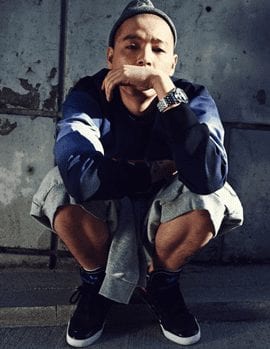
The album has ten tracks, how many tracks did Obi let you listen to at first?
In July last year when we had decided to work with Obi for the first time and went to Denmark, Obi had already prepared tracks to show us. As he was used to working with SM, Obi had prepared somewhat pop-sounding songs. The moment we heard them we turned them down right away, and explained to him again from the beginning exactly how we wanted to work. I remember that Obi kept asking “I can go this far?” and started to find interest in the work. After that, Obi had clearly understood the [musical] direction of ‘The Anecdote’ and started to make tracks without needing any special guiding. The first track [he produced] was ‘Back In Time’. Since all of us were in tune with each other at the studio through sufficient conversation, we didn’t have a separate process of choosing beats.
Including ‘비행’ [Flight], a few tracks were revealed before the album[‘s release]. They were tracks good enough to be included in ‘The Anecdote’.
‘비행’ [Flight] did not really match ‘The Anecdote’s concept, so we left it out. During the production, we frequently decided to reveal those tracks that didn’t match the concept. Five tracks were revealed for free that way before ‘The Anecdote’ came out, and honestly that was done for strategical reasons too. Sometimes, songs that you cannot [buy and] possess seem more interesting. Of course, releasing those songs as singles would have been a great profit for BANA’s revenues, but in a long-time sense, I think there is a value that only songs have that are released for free.
You could have simply taken Obi’s beats and worked on them in Korea, that is how many Koreans actually work with foreign producers. Was there a reason why you personally went to Denmark to work on the songs?
Artist and producer not meeting might not be a big problem when the two sufficiently understand each other or when the track is outstandingly good, but I think that the actual best way to work on an album is for the two to put their heads together from the start. This way of working might seem somewhat strange for a Korean artist collaborating with a foreign producer, but there is no faster and more certain way than talking to each other in person.
How was working in Denmark? I’d like to know if you find that there is any big difference to working in Korea, and if you are satisfied with the results of working abroad.
Working in new surroundings with a new producer is always strange but also brings forth new results. Looking back on the approximately three weeks of time we spent [in Denmark] working on ‘The Anecdote’, they feel very awesome but also unreal. Obi also said that it was the first time ever in his producer career that he has produced anything in such a short amount of time that he was actually satisfied with. Especially around October last year during the second camp, we picked two tracks a day and continued recording and editing them. Obviously, sometimes we had to eliminate tracks from the album, but like a very perfectly made scenario, one song after the other was made that fit the album[‘s concept]. Thinking about it again, it was a dramatic production process that none of us will ever forget.
Not only the album itself, but also the documentary of the production process that you revealed via YouTube is impressive.
I wanted to do that [documentary] since the album’s early planning stages. The Korean entertainment market concentrates relatively much on the results, it seemed to me like there wasn’t any big interest in precise mentioning of the process. Since I thought that there wasn’t enough focus in the media on the planning and making of albums, I wanted us to actively focus on that. To properly make the intended content, there is a need to see the artist and the work process from a serious point of view.
Separately, I had planned a reality show of the same title as E SENS’ first solo single, ‘I’m Good’. As it went well with that project, I planned a documentary of ‘The Anecdote’. Due to the current situation we obviously couldn’t make the documentary of the production process final, like we had first planned, still I am satisfied that we were able to show many people how E SENS and Obi worked together. As of now, only the ‘Short Edit’ version has been released, but if the situation allows it I would like to raise the documentary’s quality to how it was originally planned and show it again.
In the documentary, the part where Obi is amazed by E SENS’ rap despite not understanding the language is impressive. You might call it lip service, but what did Obi say about E SENS’ rap?
In case it was lip service, Obi is a very good actor. That is how great Obi and E SENS worked together, as if they were connected as one. Basically, they couldn’t understand each other due to the language barrier, but it was extremely surprising that when there were parts that E SENS didn’t feel, Obi noticed it and gave him advice without the need for interpretation. Especially during the recording, when there were parts I personally liked so much they gave me goosebumps, Obi always felt and reacted the same. I remember something he said while working with E SENS: until then he had thought that in hiphop the lyrics were more important than in any other genre, but since working with E SENS he had realized that hiphop is a music that can be enjoyed even without understanding the language.
How did Obi react to the finished tracks?
He repeated several times that it really is a timeless and precious album. He especially said that he was very happy to release via E SENS the hiphop album he had been wanting to produce.
In the documentary there are many scenes where E SENS writes lyrics in the studio. Did he write most of the lyrics in the studio like that? He should have heard Obi’s beats in advance, was he just making corrections to the lyrics?
Since Obi made the tracks when we worked together in Denmark, E SENS could not listen to them and write the lyrics beforehand. He heard the drum line when Obi started working and immediately began writing lyrics. Most of the time, while he was finishing the lyrics the track was also in the making, so you can say that the beats and the lyrics were being produced at the same time.
The results are thoroughly album-like, not suited for singles. At this time where albums are disappearing, didn’t you have any commercial concerns as producer?
‘The Anecdote’ obviously has come out with the basic attitude an ‘album’ has to have. This is not any especially new method, it is made up of contents that are basically needed for an ‘album’. It is a basic fact that an album is something that has to extend over [different kinds of] contents. Therefore, an album is actually more commercial in some ways. This is the natural attitude when making an album, so I had no concerns.
I heard that the album was sold 16,000 times at its release. Did you expect such a huge response?
It would be a lie if I say I didn’t. However, talking about this while avoiding E SENS’ current situation would be a lie too, so what I felt was very complicated. It is an enormous pity that the one who wanted to release this album more than anyone else cannot see and feel these things close by.
The album jacket is very simple. What did you intend with the artwork?
The name BANA (Beasts And Natives Alike) and the artwork of all contents by BANA are made by Kim Hyunji who is in charge of BANA’s visual arts. When he heard about the nature of E SENS’ first full-length album, he was the one who came up with the name ‘The Anecdote’. As ‘The Anecdote’ is an album made on the basis of one person’s ‘anecdotes’, a handkerchief that takes in a person’s sweat and tears and is always held in their hand became the artwork’s main concept. Also, he apparently found that a white handkerchief would speak for several of the current situations.
The album is receiving favorable reviews and is also selling well. Have you met E SENS after the album’s release?
Before and after the album’s release I have been visiting him frequently. I try to meet him as often as I can and talk about many things. Of course I tell him a lot of news about the album, but in the current situation he cannot be wholly happy about it, which is bitter.
The artist is not present. How are you planning to do promotions from now on?
BANA wants to stand behind their artists and support them as much as possible. Actually, I ended up having to do this interview because the artist himself cannot be present. We are planning several interesting methods and new works by diverse artists. At the current time, what we do is not only the typical promotion in the media, we are looking at way more than that. So it might appear odd. It is hard to see it immediately and there might be difficulties, but I strongly believe that later, everyone will acknowledge and accept our methods as natural.
Interview by Kim Haksun, chief editor of music web magazine :BODA
He is part of the planning committee of Naver Onstage and EBS SPACE, and member of the Korean Music Awards committee. He is writing for several media and is author of the book ‘K-POP, 세계를 홀리다’ [K-POP, Fascinating the World].
The original interview is © copyright by midiaus.
Translator’s note: midiaus could not be reached after several tries, in case of a claim from their side this translated version of the interview will be removed.
E-Sens Releases ‘The Anecdote: A Documentary’
Following the release of E-Sens’ highly anticipated album [The Anecdote], Beasts and Natives Alike (BANA) dropped the short edit documentary of E-Sens and his journey throughout his album production.
E-Sens’ first full-length album [The Anecdote] was recorded during two sessions at Deekay Studio in Copenhagen last year between July 4-10 and October 6-24. The documentary follows E-Sens and producer Obi Klein during the studio sessions. Check it out below:
E SENS – Dice
- Title: [types field=”song-title” output=”raw”][/types]
- Artist: [types field=”artist” separator=”, “][/types]
- Album: [types field=”album-title” separator=”, ” output=”raw”][/types]
- [types field=”year” format=”FIELD_NAME: FIELD_VALUE”][/types]
- [types field=”original-lyrics” title=”Original lyrics” target=”_blank” separator=”, “][/types]
Intro)
Uh, once upon a time, ah, shit
Verse 1)
Uh, I lived expressionlessly until I was around fifteen, sixteen
My eyes were like those of a beheaded fish. I just hoped
for school hours to pass. Hearing the question “What’s your dream?”
I racked my brain several times without finding an answer
As far as I remember, other kids were minding others too,((= Other kids wrote what their parents would want and be happy about.)) [choosing] the common
soccer player, doctor, or celebrity. Don’t write that thoughtlessly
Some guy said “[I’ll become] either a rich man or a gangster”
His words hit me hard, he was the most honest one
among us. I just want to become rich too
My mom doesn’t like my holey shoes either
It seems like when people are sad it’s always because of money, well
I was told that at the age of 3 people called me a genius, what an old story
My working mom, the house was empty after school
I did bad things everyday, saying it’s for my mom’s sake
No matter how I look at it, I’m an asshole. Hey, are y’all like that too?
In third year of middle school, I smoked cigarettes behind my friends’ backs
Hook)
Hey, it’s the best thing to have a lot of money and be well-off
No matter what you do, it’s meaningless if you starve
Hey, (maybe) it’s all a game of dice
Whack them on the ground or throw them up
x4)
They’re still turning
Verse 2)
After school: game room. When I had no money,
I uselessly lingered around outside without anything to do. Even after the sun had set
and it was pitch-black, I didn’t go home. Maybe it was since then
that I’ve been feeling like I was drifting. Guys who hit kids,
kids who were early interested in girls, kids who were the best at everything
I did not belong to any of them, what on earth is the talent
that I was given? They are wearing new shoes
every time, but why am I falling asleep every night
with the wish to avoid the next morning?
They ask me what my dream is but are they really asking?
I ask back: Heeeey, why do you care?
A good job? Because when you succeed you’ll meet pretty women?
That’s no proper reply for me
As I find fault in their words, they go, “What?” and tell me to hold out my cheeks
They have a blast hitting me, and I don’t even know the reason why
What can you teach me, you who accepted an envelope of money?
Hook)
Bridge)
So what do I do? Hmm … I don’t know
Shit, there should be something, like something damn fun
A job with which I can earn a lot, I should find it
at least before I turn twenty. Test papers
can’t scare me. They’re not even fun
The results of my aptitude test, fuck all that
If everyone has to live that way, then why on earth do it?
Why do it? While being stressed, time will have passed and be up
Hook)

